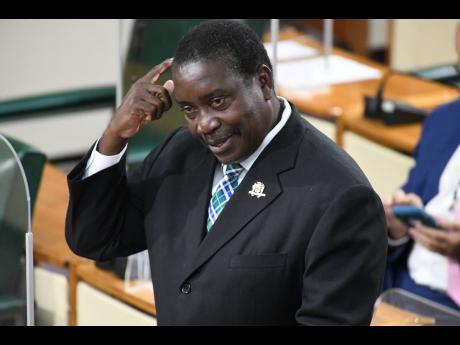JLP: No plans to widen party electorate to full membership
Jamaica Labour Party (JLP) Chairman Robert Montague says there are no plans to change the party’s voting mechanism in internal elections following moves by the People’s National Party (PNP) to open up ballots to its wider membership.
Montague told The Gleaner that while the party’s voting process is being constantly reviewed, the current structure works.
“We, as an organisation, are responsive to the needs of our members. Once these issues come up, there are forums within the party that they are properly aired and discussed and then brought forward,” he said.
In September, JLP leader Prime Minister Andrew Holness told The Gleaner that while he has taken note of the PNP’s intent, the JLP’s system “is slightly different”.
He declined to comment further.
According to the JLP’s constitution, one per cent of the total number of votes polled nationally for the party in the preceding general election is allocated to each constituency on a pro-rated basis to the JLP’s percentage of votes obtained in each constituency.
Additionally, a constituency receives one delegate for each percentage point by which the votes cast for the party’s candidate in each constituency exceeds the votes cast for all the other candidates in the constituency in the preceding general election.
For every 50 financial members of registered branches or affiliated organisations, one delegate is also selected.
In order to be eligible for selection as a delegate within the party, a person must be registered to vote in national elections. Delegates must be elected, and the election must be done by the constituency executive.
Delegates must also be elected from members of the constituency executive; members of the constituency committee; members of a management team that has been duly registered with the party; indoor agents; outdoor agents; branch members; and members of polling division committees, the party’s constitution states.
In September, The Gleaner reported that the passage of a resolution for the entire membership of the PNP to vote in internal elections was at the party’s Structures Review Committee for deliberation.
The proposal has been sent to the six regions of the party for review after receiving the nod from the Structure Review Committee.
It is expected to go to the National Executive Council, the second-highest decision-making body within the organisation, for formal adoption next year.
The delegates-only voting structure for leadership within the PNP has been a bone of contention for years, with allegations of vote-buying and bribes constantly surfacing.
PNP President Mark Golding said the current set-up belonged to a bygone era, admitting that it was time to modernise the 83-year-old party by deepening the democratic principles by which it operates.
“I am also committed to democratising our internal election processes by reforming our party constitution to embrace the principle of one member, one vote,” he told party members last month at the annual conference.

